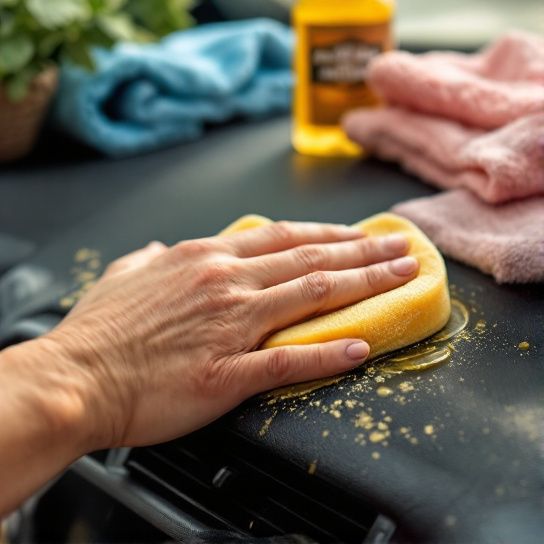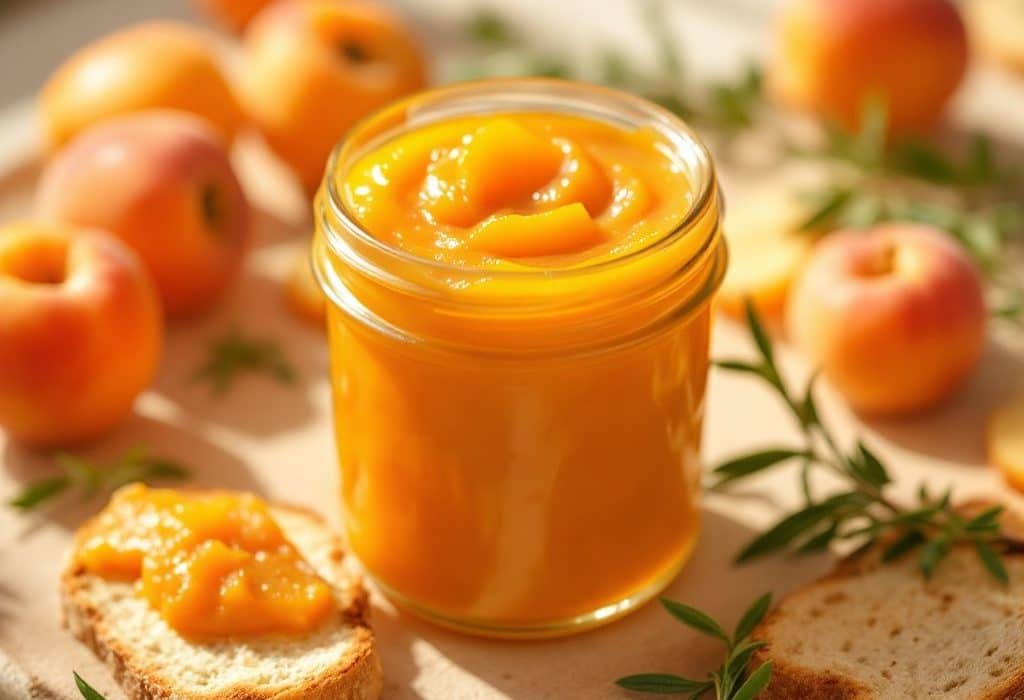Let’s talk stone fruits. They’re those juicy gems we crave each summer, like peaches and plums. Delicious, right? But there’s another hero in the stone fruit world that deserves its moment in the spotlight—apricots. Not many folks know where to start with these little golden beauties beyond tossing them in a fruit salad. Have you ever wondered just how versatile they can be? Trust me, they’re not just a one-trick pony. Among the lesser-known wonders is something delightful called apricot butter. Curious already? Let’s dive deeper.
Why Apricots?
Let’s set the stage with this: apricots are like nature’s little flavor bombs. They’re not just cute and sunny, they’re packed with nutrients. We’re talking about vitamins A and C, fiber, and those magic antioxidants everyone raves about. Pretty cool for a tiny fruit, huh?
And here’s the stunner, their remarkable benefits for the skin. Whether you’re munching on them fresh or incorporating them into some drool-worthy recipes, apricots have this way of sneaking in loads of goodness quietly but effectively. Plus, their sweet tartness makes apricot butter a versatile addition to almost anything. Feeling intrigued yet? Hang tight; there’s more to unfold!
The Beauty of Apricot Butter
So what’s the deal with apricot butter? Picture this: the spreadability of butter mixed with the rich flavor of apricots. It’s a decadent treat that’s shockingly easy to make at home. Seriously, its creation doesn’t require exotic ingredients or a lot of time. Just a simple process with mega payoffs.
You’ll want to slather it on toast, dab it on fresh scones, or even dollop it onto your chosen meat dish for an intriguing twist. See, that’s the thing with apricot butter—it manages to transform the mundane into something a bit more, well, special.

Here’s How It Adds Up
If you’re into natural beauty products, imagine turning your love for apricots into a homemade skin-Nourishment ritual! High in Vitamin C and loaded with skin-boosting nutrients, apricots are a hidden ally for those seeking to ditch synthetic products. They’re nature’s little multitaskers, offering dual beauty and culinary benefits. Total game changer.
Making Apricot Butter: Your Own Sweet Spread
Ingredients You’ll Need
Here’s one of the main reasons apricot butter deserves a spot in your kitchen: it’s delightfully simple in terms of what’s required. All you need are:
- Fresh apricots
- A hint of sweetener (sugar, honey, or whatever suits your dietary beliefs)
- Lemon juice
- A small dash of seasoning, like cinnamon or vanilla for a touch of flair
Easy Prep Process
- Start by pitting and chopping your apricots. Keep it chill—you don’t have to be super precise here.
- Simmer those pieces in a saucepan. Go low and slow with some lemon juice and sweetener, like a slow dance with flavor.
- Stir occasionally while letting the feel-good scents fill your kitchen. Experiencing the transformation is the real magic, honestly.
- Blend until smooth. At this point, your patience pays off. Blend it all smooth like you would with a typical butter, or leave it a bit chunky if that’s how you roll.
See? Piece of cake—or toast? This apricot butter not only makes your breakfast shine, but it’s also amazing tossed into natural beauty routines.

Back to Skin Health for a Sec
Apricot skin is often silky smooth, and apricots contribute to skin health like champs. Since apricot kernels have historically been incorporated into skincare (apricot kernel oil, familiar?), their flesh can echo these benefits. Replicating human practices in nature makes stuff real, connecting beauty ingredients found in stone fruits with today’s organic skincare trends.
Give this a try: after enjoying your jar of apricot butter, use any leftover apricots for a DIY face mask. Mix some apricot pulp with yogurt or honey and apply it as a moisture-boosting mask. Wait and see—your skin might just love this fruity indulgence. It’s part delight, part devotion.
Apricot Butter in Culinary Offerings
Curious where else you might slip a spoonful of this blissful spread? We’re talking crossover appeal here. It’s not only about breakfast. Apricot butter is fantastic in several savory and sweet applications:
Here Are Some Ways to Use It
- Meat Glaze: Brush it over roasted pork or chicken; savor that balance of sweet and savory.
- Dessert Topping: Drizzle over cheesecake or use it to top pancakes or waffles.
- In Baking: Fold into batters for muffins or cookies for an apricot-infused batch.
Now that’s diversity! Keeps things exciting, doesn’t it?

Recap of the Apricot Butter Essentials
_It’s easy to forget, so let’s just do a quick recap here, shall we?_
- Apricot butter is a luscious, spreadable treat with health virtues and an easy preparation process.
- It blends delightfully into both culinary recipes and natural skincare products.
- This stone fruit beauty boasts unexpected versatility. Try it in sweet and savory dishes alike!
Remember, like a true friend, apricot butter supports your health and taste adventures without fuss. Why not spread the joy a little today?
A Final Fruity Note
Next time you stroll past those blushing apricots at the market, give yourself a little nudge to pick some up. It’s about more than stocking an ingredient—it’s about going on a tiny, awesome adventure.
We all benefit from simple, inspiring things like apricot butter. This little discovery could be your sweet spot for expanding both your culinary flair and skincare prowess through natural beauty products. Give it a whirl; it spurs creativity and savoring nature’s brilliance. Trust me, those apricots will turn your ordinary into something extraordinary. Cheers to more delicious escapades with stone fruits and expanding your natural repertoire!
Frequently Asked Questions
What does it mean if a product is labeled as “natural” in the beauty industry?
If a product is labeled as “natural,” it does not necessarily mean it contains no synthetic chemicals. The term “natural” is not strictly defined by the U.S. government, so it is important to read the ingredient list carefully. Natural cosmetics typically contain ingredients found in nature, such as mica, silica, and clay, without significant chemical alteration[1][3][5>.
Why aren’t all cosmetics natural, and what are the challenges in using natural ingredients?
Not all cosmetics are natural because natural ingredients are often more expensive than synthetic ones. Additionally, natural ingredients can be challenging to work with as they may not provide the same level of stability, preservation, and performance as synthetic chemicals. Creating products that stay blended, preserved, and bacteria-free without using proven chemicals is difficult[1][3>.
How should I choose natural beauty products, especially if I have sensitive skin or allergies?
When choosing natural beauty products, it is crucial to read the ingredient list carefully and look for certifications from organizations like ACO, ECOCERT, or the USDA. Even natural ingredients can cause allergies, so it is important to patch test products before using them fully. If you have sensitive skin or known allergies, consult the ingredient list for known irritants[1][3][5>.
What are the potential benefits and drawbacks of using natural beauty products?
Natural beauty products can be gentler on the skin and are often free from harsh chemicals that can cause irritation or allergies. However, they can be more costly and may not work for everyone. Natural products can vary in consistency and scent due to natural ingredient variations, and they may require more time to apply and absorb into the skin[3][5>.
References

